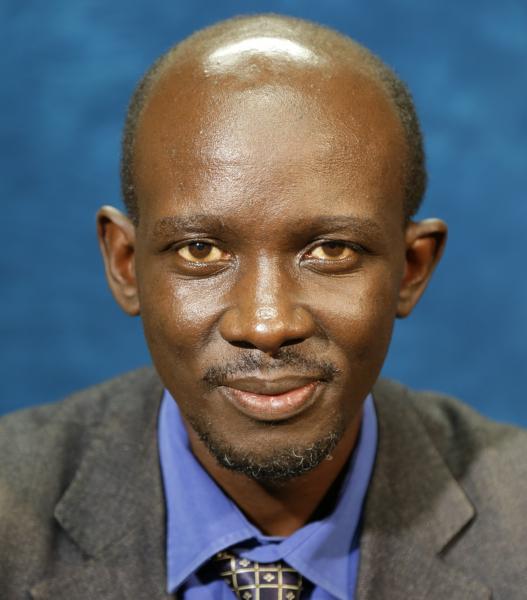
My name is Clet Wandui Masiga and I am a Conservation Biologist, Geneticist, and farm entrepreneur from Uganda. Currently I work as a research scientist at the Tropical Institute of Development Innovations (TRIDI) and am a Cornell Alliance for Science Fellow. My wife Sylvia and I have four sons. She is a social worker and an administrator with an organization that provides food supplements to families that are suffering from malnutrition.
My involvement in promoting for access to biotechnology and genetically modified organisms (GMOs) evolved naturally when I started my career. I have worked as a teacher, as an extension officer, and I continue to practice as a researcher and development worker as well as a part time farmer with my wife. We started farming because we wanted other farmers who were not exposed and were not knowledgeable to learn from us, in order to also do the same to improve their productivity.
As a conservationist and Geneticist I had learned about the evolution of breeding techniques and origin of domestications of plants and animals. I had also been trained in sustainable conservation and utilization of genetic resources for food and agriculture. I spent part of my life working in a genebank in the UK, which involved going out to the field and collecting plants for conservation and researching on them to benefit farmers and breeders.
When I returned to Uganda in January 2009, I decided to concentrate on my farm; however, that year there was a lot of drought. My tomatoes and Maize were completely lost, and my cassava was destroyed by cassava brown streak disease. We lost all our investments and in the same period my dad succumbed to cancer of the esophagus and passed on. I decided to seek employment first to earn a living, but most importantly I wanted a job that could help me develop new crop varieties in response to some of the challenges that I had faced as a farmer. That year, people in Uganda died due to lack of food from the drought; I thought God had failed my crops so I could help farmers.
I ve been fortunate in that all my biotechnology and breeding work had been done under public institutions. We developed GM maize and Sorghum for drought tolerance and cassava for resistance to cassava brown streak disease resistance under National agricultural research Institutes. All the other biotechnological approaches that we used such as Marker Assisted Breeding, tissue culture, conservation biotechnology and gene mapping and isolation of genes were also under public institution. I have also developed non-GM sorghum lines for drought tolerance and striga resistance under my private organization, but the varieties are yet to be released.
While we were busy working on solving farmer s problems, some people kept writing misinformation about GMOs and their promoters in newspapers. I also listen to misinformation on TVs and Radio talk shows. This is the time I decided that I should start providing first hand information on GMOs, since I was also developing them. I had an advantage in that I was not only developing GMOs but I was also using other approaches to solve farmer s problems. I believe in integrated approaches and an approach that delivers a solution is acceptable to me.
One of my biggest challenges has been my fellow scientists who have chosen to ignore debating with anti-GMO activists. This has provided a platform for the anti-GMO activists to continue misinforming the public and denying farmers the technologies that they need most. I have also been advocating without any specialized skills in communication and advocacy. Joining the Alliance for Science has greatly enhanced my skills to communicate and advocate for access to these technologies in my country. I believe that unless we get out of the laboratories and talk to the population, our farmers will continue to suffer due to misinformation. Every field is using scientific innovation to advance and there should be no exception in plant breeding
Follow Clet on Twitter: @cwmasiga
